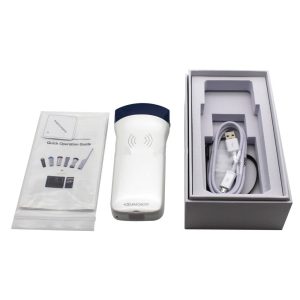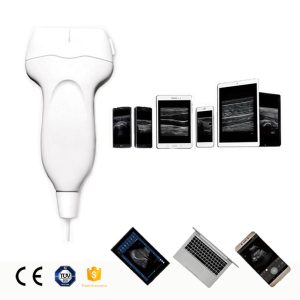Portable ultrasound devices have become invaluable assets in many healthcare settings. Medical institutions benefit greatly from the mobility, lightweight design, versatility, and accessibility of these devices. The ability to move these devices easily across different departments or even outside the traditional clinical environment has made them indispensable in modern healthcare.
These devices offer real-time imaging, enabling healthcare professionals to observe and assess the structure and function of organs, tissues, and blood vessels instantly. This immediacy is crucial in making accurate diagnoses, particularly in emergency situations where time is of the essence. However, while portable ultrasound devices are highly beneficial and enhance the quality of healthcare, it is important to carefully evaluate all factors before making a purchase. Below are some critical aspects to consider when selecting the right device for your needs.


Factors to Consider When Choosing a Portable Ultrasound Device
Application
Understanding the intended application of the device is crucial in finding one that suits your specific needs. Applications can vary widely, from assessing damaged organs in emergency patients to conducting routine pregnancy scans, cardiovascular assessments, or even musculoskeletal evaluations. Multifunctional devices can offer better value and flexibility compared to those intended for a single use. Selecting a device that aligns with your imaging requirements is essential.Portability
Size and weight are key factors when choosing a portable ultrasound. These devices typically fall into three categories: handheld, fold-down, and laptop-based. Handheld devices are the most compact, ideal for in-field assessments or home healthcare services. Fold-down and laptop-based devices, while slightly bulkier, generally offer more advanced features and higher image quality, suitable for comprehensive diagnostic procedures. It’s important to balance portability with the range of features to meet the demands of your practice.
Compatibility
Compatibility is another crucial consideration, especially if you need to connect the device to other equipment or software. Ensuring that your portable ultrasound device supports connectivity with laptops, mobile phones, or tablets can greatly enhance its functionality and efficiency in your medical practice. Price While price is often a significant consideration, it should not be the only factor when purchasing a portable ultrasound device. It's more important to focus on the device's applications, compatibility, and features. However, finding a device that offers advanced technology and features at a reasonable price is essential for balancing budget constraints with the need for high-quality care.





